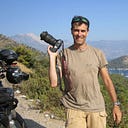Kırkpınar: the oil wrestling
It was the year 1346.
Sultan Orhan’s Army was returning from a victorious campaign in Thrace, and camped close to Adrianople. Forty warriors challenged each other into a wrestling tournament and their commander, the Sultan’s son, offered combat leather trousers as a trophy for the winner. But none of the last two champions, two brothers, could prevail. They wrestled for a day and a night and at last they both died of exhaustion, without a winner. Their comrades buried them under a fig tree and nailed the trophy to the it.
Years later, the returning soldiers could not find the wrestlers’ grave: on its place there was instead a water spring with forty sources. Since then every year they returned to that place to wrestle, thus honoring the memory of the fallen heroes.
Nowadays Adrianople is called Edirne.
After having been conquered in 1354, it became the second capital of the Ottoman Sultans, which made it wonderful, with the most beautiful mosque of Turkey, Selimiye Camii, built by the celebrated architect Sinan. After Balkan Wars and the collapse of the Empire it has become a small town on the border but Turkish wrestlers keep meeting here every year. Wrestling is part of local folklore, to the point that it is said that to be entitled to marry a girl from Edirne the suitor first has to wrestle and beat the girl’s father or brother.
In 2012 the Oil Wrestling tournament has reached its 651st edition. It is called “Kirkpinar” (pr: k’rkp’nar), “forty springs”, it is included in UNESCO Intangible Cultural Heritage of Humanity and it is the most ancient sport tournament that has been regularly organized without interruptions.
Wrestlers come from all over Turkey: they wear only a pair of leather trousers and pour olive oil over their entire bodies: this way to grab an opponent is extremely difficult. The winner is the one who can pin his adversary’s shoulders to the ground or lift him over his own shoulders.
Fights are at single elimination in a dedicated arena: as in ancient gladiatorial games many couples wrestle at the same time on the field.
The ritual is unchanged since Ottoman times: wrestlers called “Pehlivan”, an ancient Persian word meaning “hero”, grease themselves with olive oil and line up on the border of the arena facing the tribune of honor, where among authorities is sitting the “Agha”, the person who has won the yearly bid to organize the tournament. A traditional band plays the spirited ottoman rhythms, the same that resounded on ancient battlefields. The speaker invokes the divine blessing upon the wrestlers, reciting the “shahada”, the Islamic creed (a bit incongruous during a sport event in a secular republic: a relic of times when a wrestling match was also a divine judgment), the “pehlivans” kiss the ground and march into the arena in ceremonial steps. Then they face each other, in couples, and fight.
Oil wrestling is a tradition dating back to the dawn of civilization: the most ancient depiction has been found in a tomb in Saqqara, Egypt, dated 2650 BCE.
Today it is also called “Turkish Wrestling” and it is spreading over Turkish borders, especially in Japan and the Netherlands but Edirne’s tournament is still the most important one, even if only Turkish citizens are admitted.
This year a sound 1556 wrestlers, divided into 14 categories, have challenged each other on the grassy field of the arena on the island of Sarayiçi, between the rivers Meriç and Tunca, which was once a Sultans’ hunting reserve. The winner, the “Başpehlivan” (“chief wrestler”) gets a 14 k gold belt, but also cups and medals: these are recent innovations, since after the foundation of the Turkish Republic, Mustafa Kemal Atatürk turned the country towards Europe, abandoning many of ancient Middle Eastern traditions too. Up to that moment, the winner’s prize was in gold, sheep, goats and even ducks or chickens, whatever that year’s “Agha” could provide.
This year the precious gold belt has been won by Ali Gurbuz, from Antalya, beating for the second year in a row Recep Kara, from Ordu on the Black Sea, that was champion for three times. Ali Gurbuz’s father was a famous Başpehlivan in his times.
Most of the wrestlers compete on their own expenses, sleeping in cars or camping in the park surrounding the arena, travelling in groups, accompanied by friends or relatives.
The week of “Kirkpinar” is the most important of the year in Edirne and the park on the island changes into a large fair ground where spectators, wrestlers, vendors, musicians and journalists from all over the world gather. Outside of the arena, flowers are deposed at the statues of the famous “Başpehlivans” and “Aghas” of the past, religious ceremonies honor the “pehlivans” buried in their graveyard.
But the atmosphere remains one of solemnity, more than celebration: it is tangible the awareness of hundreds of year’s history that shaped the Turkish people very soul. With countless differences in the mosaic of traditions that is modern Turkey, the “Kirkpinar” is one of the few that are really felt everywhere in the country. Looking at boys and men wrestling in the arena, an expression from XIXth century Orientalist travelers comes to mind: “As strong as a Turkish wrestler”.
Originally published in Italian on Mediterranea
